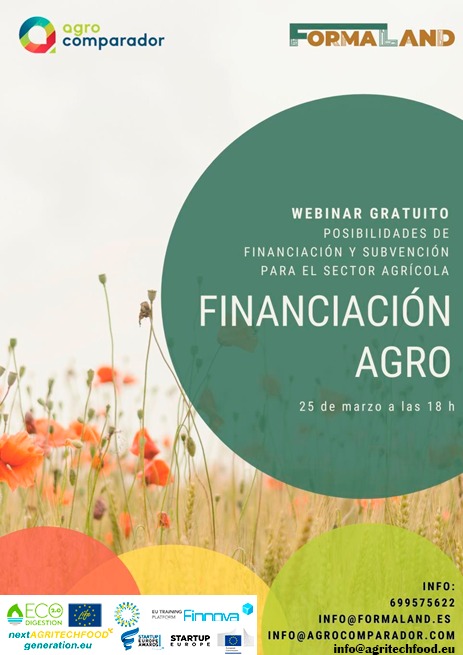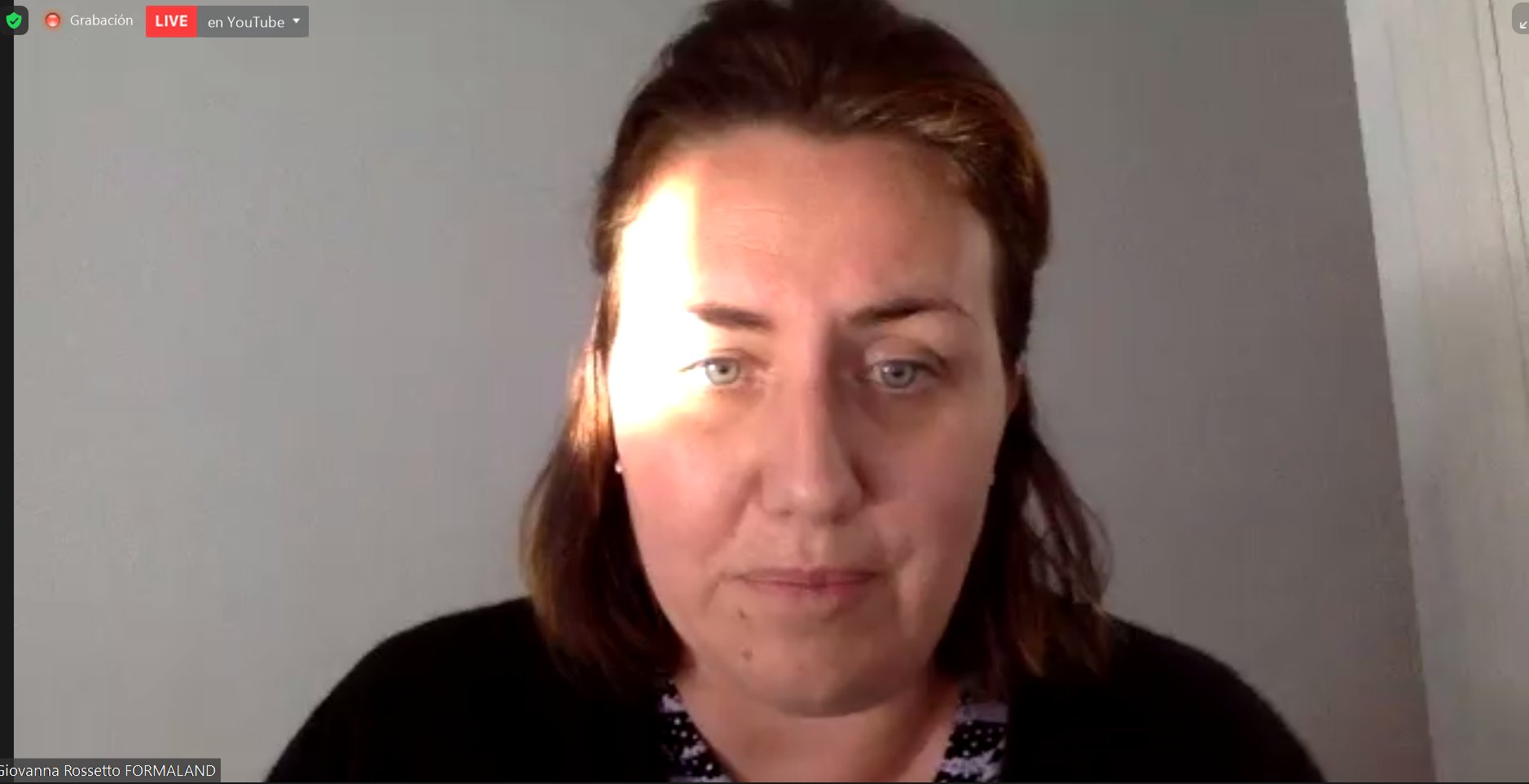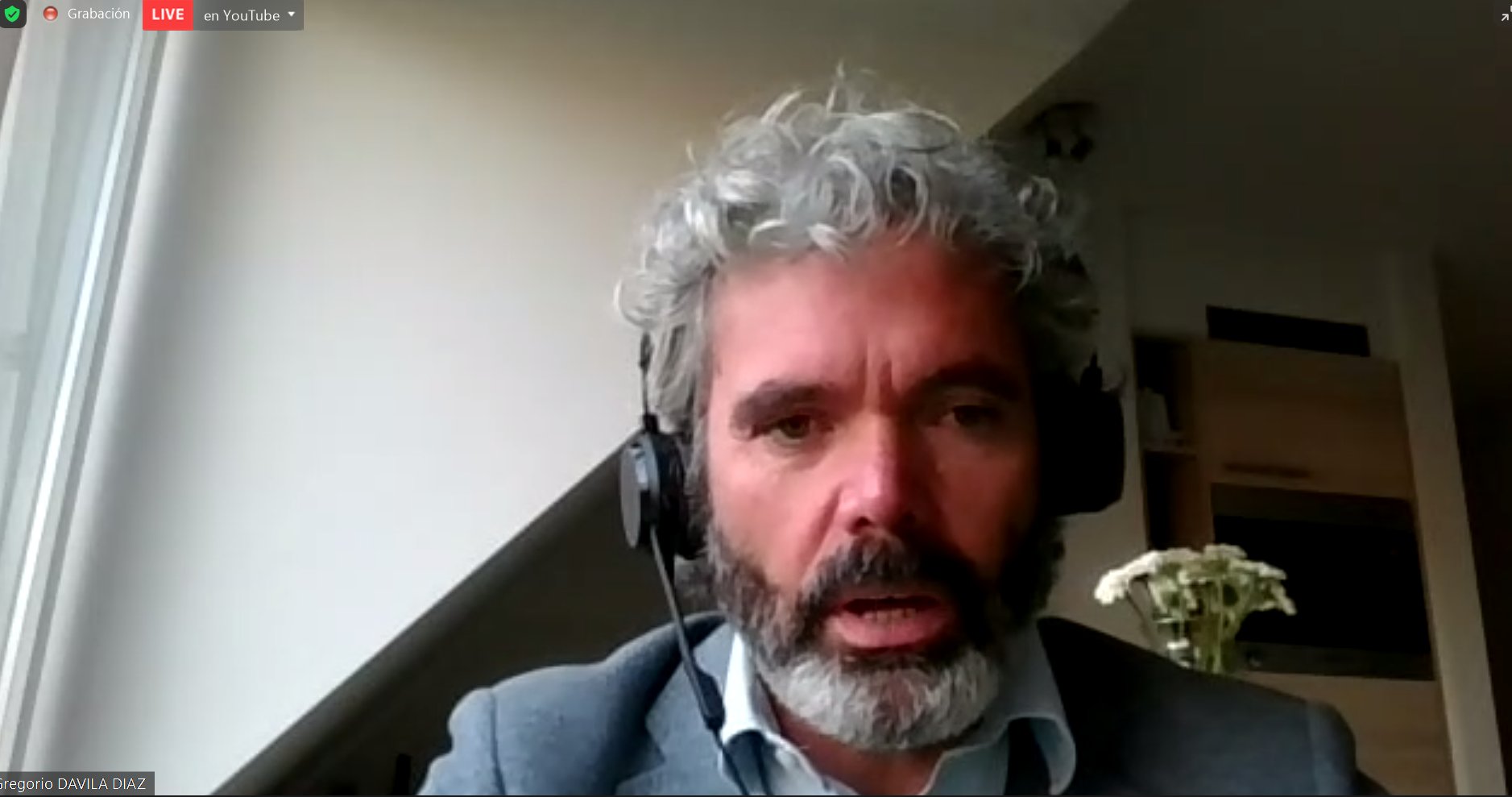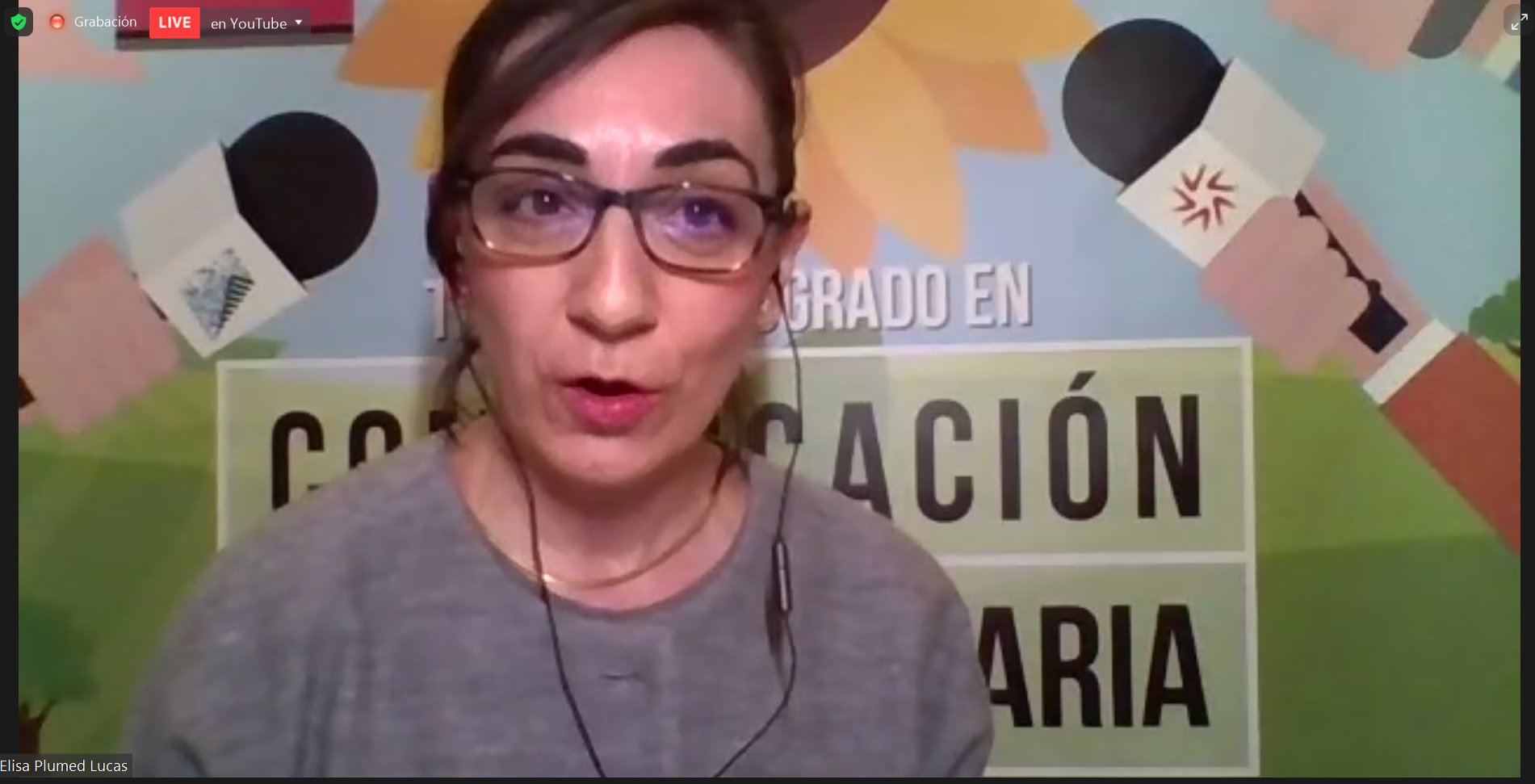NextAgritechFoodGeneration.eu presented on the second Next Generation EU webinar for the agri-food sector
-
The Next Generation UE Plan for the economic recovery of the EU will provide Spain with150,000 million Euros.

Brussels, 26.03.2021 – On March 25th, the webinar “Funding and Subsidy Opportunities for the Agri-Food Sector” took place, organised by Formaland Agro Campus, Agrocomparador y la Finnova Foundation as a result of the success of the first webinar, which was celebrated on March 4th.
During the first webinar, several experts from Finnova proposed a series of challenges that the agricultural sector is facing in order to deal with the United Nations Sustainable Development Goals. However, this second webinar was mainly focused on presenting the funding mechanisms that the European Union proposes to face these challenges in accordance with the European Green Deal and with the United Nations SDG challenges.
The second webinar addressed both the resources and the programmes that the European Commission proposes to boost sustainability in the agricultural sector and in rural areas throughout the EU from aneconomic, social and environmental point of view. Among them, the Next Generation EU Plan deserves to be highlighted, conceived to promote economic recovery in the European Union and to help repair economical and social damages caused by the coronavirus.
The webinar, moderated by Juanma Revuelta, CEO of Finnova Foundation, started with the participation of three prominent personalities of the agricultural sector. First, Giovanna Rosetto, project manager at Formaland, stated that “for Formaland, the main mission is to accompany professionals from the agricultural sector for the sustainable development of their company”. Then, María Rodríguez, communication and marketing manager at Agrocomparador, referred to Agrocomparador and how “farmers have to possibility to give a fair price to their products, giving them greater importance”.
 Giovanna Rosetto, project manager at Formaland
Giovanna Rosetto, project manager at Formaland
Afterwards, during the first block, entitled “European Funds for the agri-food sector”, several experts in the subject were involved. Gregorio Dávila, deputy head of Unit “Conception and consistency of rural development” at European Commission, talked about the EAFRD, EAGF, LEADER and insisted that “these will be reinforced by the Next Generation EU fund with an additional 8 billion“. “The funding has to be directed to the axes for a digital and green transition and to the different synergies that may arise,” Dávila added.
 Gregorio Dávila, Deputy Head of Unit “Conception and consistency of rural development” at European Commission
Gregorio Dávila, Deputy Head of Unit “Conception and consistency of rural development” at European Commission
Juan Viesca, director of European funds at Finnova Foundation, spoke about the Next Generation EU Funds but wanted to emphasise other possibilities such as “direct management funds, managed directly by the European Commission, among which the Horizon Europe programme stands out, with the EIC Accelerator or PRIMA sub-programmes, the ERDF programme, Interreg Europe and its different sub-programmes, such as Interreg V Sudoe or the LIFE programme, with 5,300 million euros”.
Regina Monsalve, president of the Official College of Agricultural Technical Engineers of Valencia and Castellón (COITAVC) and president of the Engineering and Society Forum, stated that “we are facing two very serious problems in the agricultural industry: generational replacement and the reduced number of women in this sector”. Monsalve also spoke of eco-schemes and emphasised the fundamental role of digitalisation in this field. Finally, the president of COITAVC talked about NextAgritechFoodGeneration.eu, a platform of the Finnova Foundation where the latest developments in the agricultural sector and the European Union in terms of financing, legislation, events, news, etc. are published.
 Regina Monsalve, president of the Official College of Agricultural Technical Engineers of Valencia and Castellón (COITAVC) and president of the Engineering and Society Forum
Regina Monsalve, president of the Official College of Agricultural Technical Engineers of Valencia and Castellón (COITAVC) and president of the Engineering and Society Forum
Finally, Elisa Plumed, president of the Spanish Association of Agri-Food Journalists, closed this block by stating that “it is necessary to communicate better” and that “training is fundamental to communicate the financing of the agricultural sector, in fact, the challenge of the CAP has been achieved but it has been poorly communicated”. The moderator, Juanma Revuelta, took the floor on this occasion to talk about Next Talent Generation EU, a platform of the Finnova Foundation for finding paid traineeships in Europe.
 Elisa Plumed, president of the Spanish Association of Agri-Food Journalists
Elisa Plumed, president of the Spanish Association of Agri-Food Journalists
The webinar ended with the presentation of a case of success by Mercedes Iborra, co-founder of VisualNACert, a company committed to the SDGs that develops innovative technologies for agri-food producers, as she says “combining agronomic knowledge with technological knowledge” and insists on the importance of digitalisation in the agricultural sector with a sustainable, circular and green approach.
At the end of the webinar, the moderator wanted to recall that Next Generation is already the largest economic stimulus package of the European Union. A total of €1.8 trillion that will help rebuild a post-COVID-19 Europe: a greener, more digital and resilient Europe. “It is a budget prepared not only for today’s realities, but also for the uncertainties of the future,” stated Revuelta, who also presented the LIFE Ecodigestion 2.0project for the energy efficiency of wastewater treatment plants by treating putrescible organic waste in the agricultural sector.
Did you miss the webinar? Click here
About Finnova Foundation
European Foundation for the financing of innovation. It is a European foundation based in Brussels whose objectives are to promote public-private cooperation through innovation to address social challenges such as employment, training, entrepreneurship, the United Nations SDGs, the circular economy, etc. Finnova organises the Startup EuropeAwards, an initiative of the European Commission and the Finnova Foundation, to recognise the best European startups in the social field. www.finnova.eu
About la Formaland Agro Campus
Formaland was created in response to the need or demand of a booming sector, such as the agricultural sector, which is undergoing an integral transformation or change towards the latest generation of super-intensive and organic crops. This transformation requires an important change in traditional techniques, management strategies, work procedures, mechanisation or industrialisation, which must necessarily be accompanied by a process of recycling or training, on the part of the business community, as well as the human teams that manage the day-to-day work in the fields. www.formaland.es
About Agrocomprador
Buy and sell farm products. Agrocomparador knows the market price of your product. Just by answering a couple of questions we will tell you the minimum price at which you can sell it, then you decide if the offers you receive are of interest to you or not. Once the price has been calculated, if you are interested in selling at the market price, we will ask you how many kilos you have to sell and finally we will confirm that all the information is correct in order to put it on sale. Our sales department will check all the information and in less than 24 hours your product will be active in Agrocomparador to start receiving offers. www.agrocomprador.es
About Startup Europe Awards
It is a methodology of the European Commission’s DG CONNECT, implemented by the Finnova Foundation since 2016. The SEUAs are an open innovation tool for identifying disruptive startups that promotes public-private collaboration and raises awareness of the importance of self-entrepreneurship as a driver of employment. In addition to generating alliances that help to meet the SDGs of the United Nations and the actions of the European Green Deal, thus contributing to the circular economy, the fight against climate change and sustainable tourism. www.startupeuropeawards.eu/seua/
About LIFE Ecodigestion 2.0
LIFE Ecodigestion 2.0 is a project that promotes the circular economy with regard to wastewater treatment through the production of electricity and heat from the biogas generated by the co-digestion of waste and WWTP sludge. The project, with a budget of 971,420 euros, of which the European Union finances 55%, is coordinated by the company Global Omnium and involves the Portuguese company Águas do Centro Litoral and the Finnova Foundation, based in Brussels, as partners. www.lifecodigestion.com
About Next Talent Generation EU
The Next Talent Generation programme was created with the aim of creating a European alliance that brings together different types of entities (non-profit organisations, companies, universities, European institutions, national administrative authorities, etc.) to offer training opportunities in the framework of the EU on the same platform. This platform aims to showcase programmes offering mobility placements in Europe with the aim of promoting transnational mobility and improving the employability of young people.
At Finnova we currently offer the possibility of traineeship positions in all EU countries through the National Youth Guarantee Programme. https://nextalentgeneration.eu/
